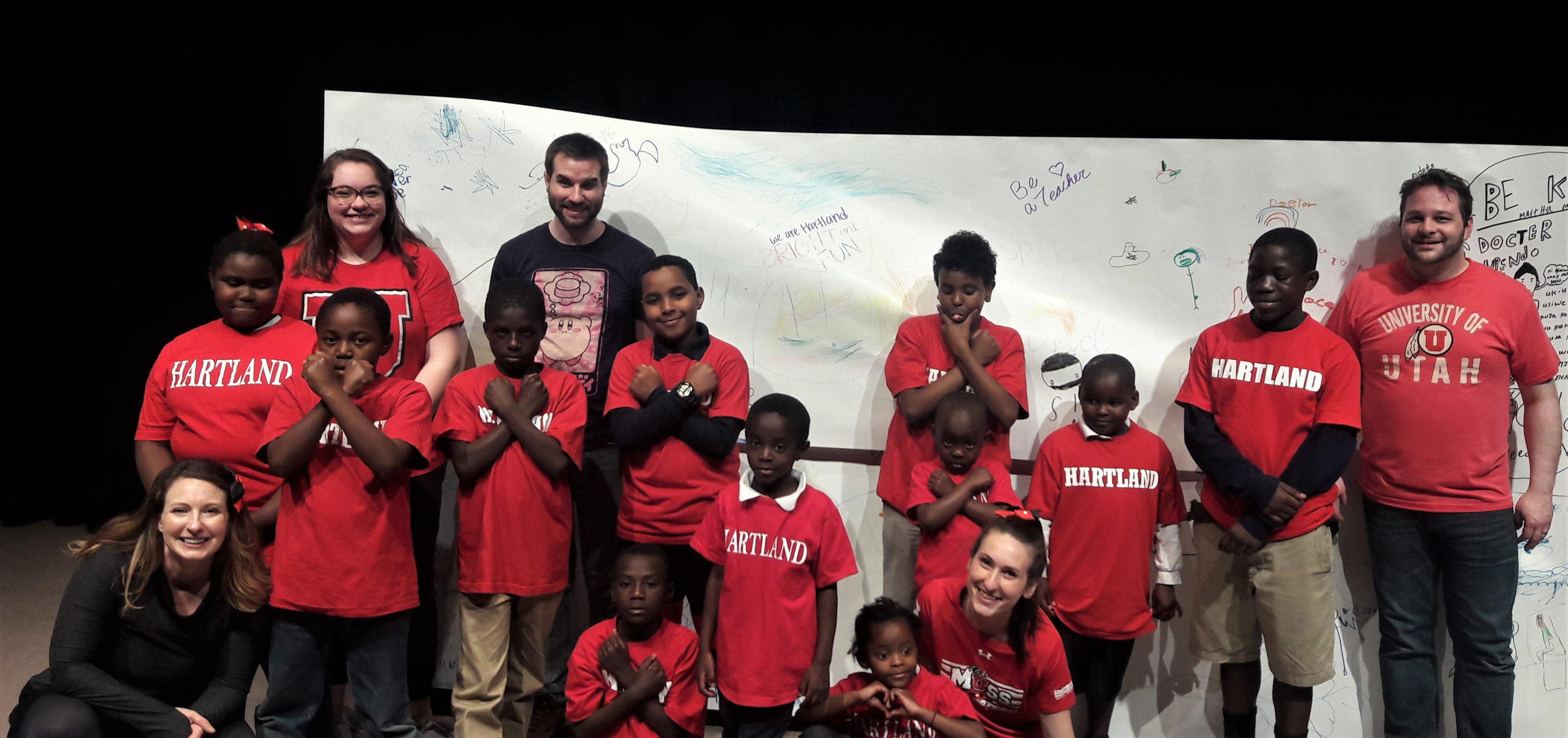
Districts and after school programs throughout the United States grapple with ways to best serve their students. For some students, growth and progress come through various school and after school community partnership experiences. Community-based arts education programs can have a significant and positive impact on participating youth—and on overall community development. Research proves that the arts can have a positive effect on academic, cognitive, and social skills development for all students (Deasy, 2002; Nelson, Paul, & Barnhill, 2017).
In the spring of 2019, Kelby McIntyre-Martinez and the Hartland Youth Center staff mutually observed that youth could benefit from targeted social interventions that supported youth opportunities to engage in sustained and consistent pro-social behavior activities at the Center. Abdullah Mberwa and Jasmine Montoya, Hartland Youth Center Coordinators, and Kelby collaboratively established the language and pro-social interventions that they would collectively carry out for 28 weeks at the Hartland Youth Center. The interventions tracked student consistency and growth in their abilities to make and engage in pro-social decisions. Theatre and dance education functioned as the focus program for this study.
Intervention language included:
- Be in control of bodies and voices;
- Give 100%/Try (homework, listening, sharing, creating, leading, and participating); and
- Have fun.
Over the course of the study, the team realized the value of age-appropriate interactions between peers. Modeled and consistent pro-social behavior strategies/methods encouraged by the theatre and dance teacher as well as youth center staff provided youth opportunities: 1) to work through the steps of completing a collaborative project prompted by making simple choices, 2) engage in observational assessments, 3) foster roles of independence and leadership, 4) learn new arts-based and communication techniques, 5) share and celebrate cultural heritages.
Study Outcomes & Accomplishments:
Consistent Pro-social Behavior Interventions: Participating youth identified the following pro-social areas they would like to grow in: student focus on the task at hand; following directions first time given; volume control; personal spatial awareness.
- Accomplishments included:
- Healthy increase in peer-to-peer accountability;
- Participants increased their sustained attention to tasks when working in small groups significantly over time;
- More awareness of volume control was apparent to observers, staff, and program leaders as the study progressed; and
- Participants took on prompted and unprompted (organic) leadership roles within the theatre and dance program.
- Observed and Student Assessed Growth:
- Focus on the task at hand increased 22%;
- Following directions the first time given increased 28%;
- Volume control increased 12%; and
- Personal spatial awareness increased 58%.
Universally Designed Collaborative Lessons with Structured Social Opportunities: When lessons were designed specifically as group projects that culminated in a collaborative theatre and dance sharing as the result, pro-social peer-to-peer collaboration seemed to be more successful.
All Staff Members Have the Same Goals in Mind: When staff and program leaders were implementing consistent language, promoting pro-social behaviors explicitly between programs, more youth were successful for longer, more sustained periods of time throughout the study.
Content provided by Kelby McIntyre-Martinez, Assistant Dean for Arts Education & Community Engagement, University of Utah College of Fine Arts.
